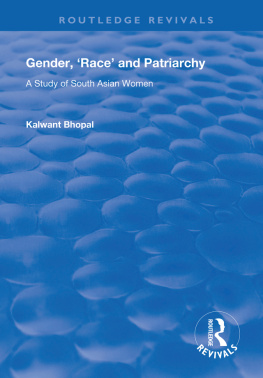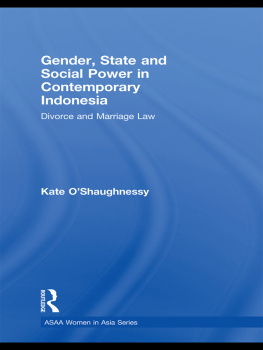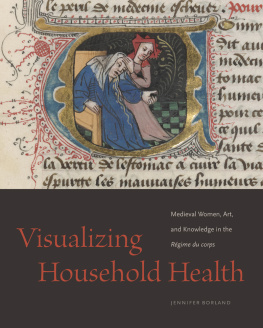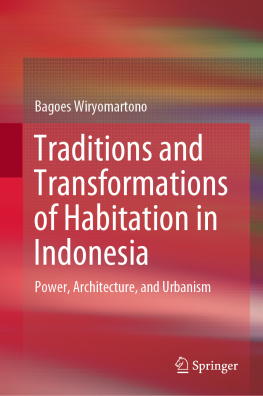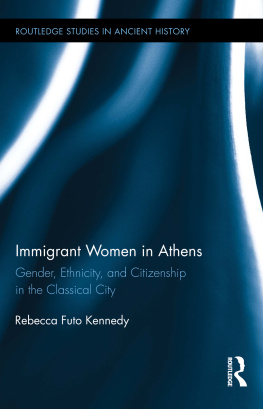
Women and Households in Indonesia
Nordic Institute of Asian Studies
NIAS Studies in Asian Topics
15. Renegotiating Local Values
Merete Lie and Ragnhild Lund
16. Leadership on Java
Hans Antlv and Sven Cederroth ( eds )
17. Vietnam in a Changing World
Irene Nrlund, Carolyn Gates and Vu Cao Dam ( eds )
18. Asian Perceptions of Nature
Ole Bruun and Arne Kalland ( eds )
19. Imperial Policy and Southeast Asian Nationalism
Hans Antlv and Stein Tnnesson ( eds )
20. The Village Concept in the Transformation of Rural Southeast Asia
Mason C. Hoadley and Christer Gunnarsson ( eds )
21. Identity in Asian Literature
Lisbeth Littrup ( ed. )
22. Mongolia in Transition
Ole Bruun and Ole Odgaard ( eds )
23. Asian Forms of the Nation
Stein Tnnesson and Hans Antlv ( eds )
24. The Eternal Storyteller
Vibeke Brdahl ( ed. )
25. Japanese Influences and Presences in Asia
Marie Sderberg and Ian Reader ( eds )
26. Muslim Diversity
Leif Manger ( ed. )
27. Women and Households in Indonesia
Juliette Koning, Marleen Nolten, Janet Rodenburg and Ratna Saptari ( eds )
28. The House in Southeast Asia
Signe Howell and Stephen Sparkes ( eds )
29. Rethinking Development in East Asia
Pietro P. Masina ( ed. )
Women and Households in Indonesia
Cultural Notions and Social Practices
Edited by
Juliette Koning, Marleen Nolten, Janet Rodenburg and Ratna Saptari
Nordic Institute of Asian Studies Studies in Asian Topics Series, No. 27
First published in 2000 by Curzon Press
Published 2013
by Routledge
2 Park Square, Milton Park, Abingdon, Oxon OX14 4RN
711 Third Avenue, New York, NY, 10017, USA
Routledge is an imprint of the Taylor & Francis Group, an informa business
Typesetting by the Nordic Institute of Asian Studies
Nordic Institute of Asian Studies 2000
While copyright in the volume as a whole is vested in the Nordic Institute of Asian Studies, copyright in the individual papers belongs to their authors. No paper may be reproduced in whole or in part without the express permission of the author, publisher or editors.
British Library Catalogue in Publication Data
Women and households in Indonesia: cultural notions and social practices. - (NIAS studies in Asian topics; 27)
1.Women - Indonesia - Social conditions 2.Households - Indonesia
I.Koning, Juliette
305.4'2'09598
ISBN 13: 978-0-700-71156-7 (hbk)
Contents
| Marleen Nolten |
| Ratna Saptari |
| Elsbeth Locher-Scholten |
| Barbara Hatley and Susan Blackburn |
| Sylvia Tiwon |
| Diane Wolf |
| Keebet and Franz von Benda-Beckmann |
| Megan Jennaway |
| Joke van Reenen |
| Juliette Koning |
| Becky Elmhirst |
| Janet Rodenburg |
| Willemijn de Jong |
| Ratna Saptari |
| G.G. Weix |
Tables
Figures
Franz von Benda-Beckmann is professor of law and rural development in Third World countries at the Agricultural University Wageningen (the Netherlands). His major fields of research are the relations between legal complexity and the management of natural resources, social (in)security of rural population groups, and legal anthropological theory and methodology. He has done fieldwork in Malawi, West Sumatra and the Moluccas. He is the author of Rechtspluralismus in Malawi (1970), Property in Social Continuity (1979) and numerous articles on legal pluralism, social security and property issues. Together with Keebet von Benda-Beckmann he co-edited a number of books, among them Between Kinship and the State: Law and Social Security in Developing Countries (1988) and Natural Remittees, Enviromnent and Legal Pluralism (1997). At present he and Keebet von Benda-Beckmann are involved in a research project on the management of natural resources and social security in plural legal settings in Indonesia and Nepal.
Keebet von Benda-Beckmann is professor of anthropology of law at the Faculty of Law, Erasmus University Rotterdam. She obtained her PhD degree at Nijmegen University based on field research on dispute management in West Sumatra. She did field research on local forms of social security in Islamic Ambon, Eastern Indonesia and has published extensively on issues of legal pluralism and social security. She co-authored a book on the Emancipation of Moluccan Women in the Netherlands (1992) and co-edited a variety of books on sorio-legal issues, among them Water Rights, Conflict and Policy in Nepal (1997).
Susan Blackburn has a PhD from Monash University, and now lectures there on Southeast Asian politics and gender in Asian politics. She is also director of the Development Studies Centre. Her past publications include Jakarta: a History (1997; under her former name, S. Abeyasekere). At present she is conducting research on Indonesian women in the twentieth century.
Becky Elmhirst is a lecturer in human geography at the University of Brighton. She obtained her PhD in Environment and Development from the University of London in 1997. Her publications include articles on gendered resource management in transmigration areas and inter-ethnic resource politics in transmigration areas. She is working on a book entitled Gender, Environment and Culture: a Political Ecology of Transmigration in Indonesia . Her research focuses on intra-household relations, community resource politics and environmental change in Indonesia. She is currently working on a new project which investigates the household-level links between migrant factory work and rural land use in a Sumatran transmigration area.
Barbara Hatley teaches Indonesian studies and is director of the Centre of Southeast Asian Studies at Monash University. Her main research interests are in the fields of Indonesian performance, literature and gender studies. Her recent publications include articles on Gender Concepts and Performances in Java (in Power and Difference: Gender in Island Southeast Asia edited by J. Atkinson and S. Errington (1991) and Gender, Nation and Indonesian Literature (in Imagining Indonesia: Cultural Politics and Political Culture edited by J. Schiller and B. Martin-Schiller (1997).
Megan Jennaway studied social anthropology at the Australian National University and the University of Sydney before receiving her doctorate in medical anthropology from the University of Queensland's Tropical Health Program. She is currently revising her thesis, 'Sweet Breath and Bitter Honey: HIV/AIDS and the Embodiment of Desire Among North Balinese Women', for publication by the University of Chicago Press. She has had several articles published in anthropological anthologies and journals, as well as contributing book reviews to journals such as RIMA and Anthropological Forum . In between her academic work she also writes fiction and immerses herself in the mothering of three young children.


